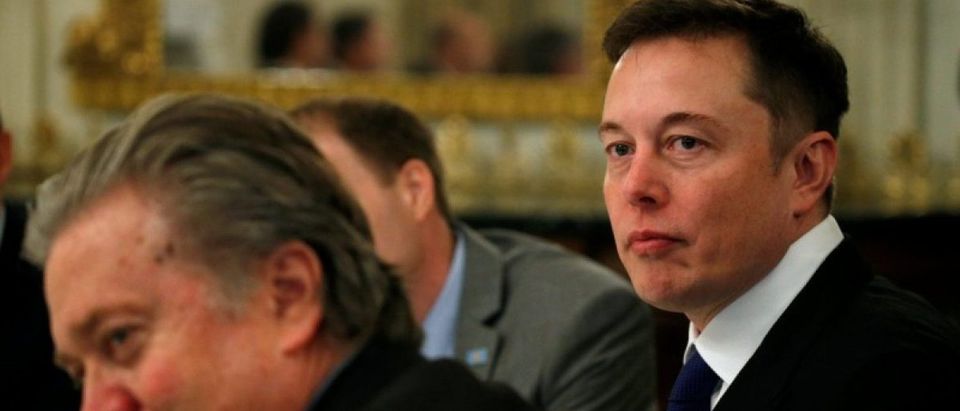- Elon Musk’s decision to sink Tesla’s financial future with a oil-rich Saudi Arabia is difficult to square with the tech billionaire’s previous criticisms of fossil fuels.
- Tesla’s blooming relationship with Saudi Arabia is likely to dredge up hard feelings and tough questions.
- Musk’s harsh criticisms of the oil industry are coming back to bite him as Saudi Arabia considers buying out Tesla.
Elon Musk’s decision to shackle Tesla to oil-rich Saudi Arabia represents an about-face for a tech billionaire who once presented himself and his companies as a viable alternative to fossil fuel.
Musk was at one time a harsh critic of the oil industry and a champion of so-called green energy. He did everything from blasting major media outlets for supposedly being lapdogs of polluters to dinging President Donald Trump for leaving the Paris climate deal. Now, the tech billionaire is on the verge of hitching Tesla’s fortunes to one of the most powerful oil producers in the world.
Musk suggested in an Aug. 10 tweet taking Tesla private shortly after reports showed Saudi Arabia’s Public Investment Fund (PIF) bought 5 percent of the electric vehicle maker’s shares this year. The PIF’s position is worth between $1.7 billion and $2.9 billion at Tesla’s current share price. Musk has since cited continued talks with the OPEC nation as one of the reasons for why he believes the company will be able to pull Tesla from Wall Street oversight.
The Tesla CEO’s new stance represents a significant departure from Musk’s previous positions. He called on people to revolt against oil producers at the 2016 World Energy Innovation Forum (WEIF), accusing fossil fuel companies of being involved in an elaborate, well-coordinated effort to take down his projects. (‘He’s A Liability’: Analyst Claims Musk Is Begging For Tesla’s Board To Pull The Plug)
Blasting away at oil companies is an apparently a tried-and-true strategy for the entrepreneur. Musk complained in May that “fossil fuel companies” has an unfair advantage over Tesla in terms of advertising dollars. Exxon and other finance a lot of outlet’s contents, he wrote in a tweet that month.
“Problem is journos are under constant pressure to get max clicks & earn advertising dollars or get fired,” Musk told his Twitter followers, alluding to his belief that media outlets are beholden to Big Oil. “Tricky situation, as Tesla doesn’t advertise, but fossil fuel companies & gas/diesel car companies are among world’s biggest advertisers.”
He also sought to punish Trump for extricating the U.S. out of an Obama-era climate agreement designed to radically reduce greenhouse gasses. Musk and Disney’s Robert Iger resigned from White House advisory councils in June 2017 after Trump announced that he is withdrawing from the accord, a non-binding deal the administration argued was poorly negotiated.
“Leaving Paris is not good for America or the world,” Musk wrote in a June 1 tweeted shortly after bowing out of the council. He claimed to have “done all I can” as a member of the advisory councils to push Trump to stick with the plan. He later tweeted about China’s commitment under the climate accord; among that country’s goals is to get 20 percent of its energy from green energy within a decade. Musk’s properties stood to benefit to some extent from the U.S.’ participation in the deal.
One UN program – the Green Energy Climate Fund – connected to the deal was designed to further much of Tesla’s aims. The GCF’s mission is to boost green energy in third-world countries with money donated from richer countries. Former President Barack Obama was a major supporter of the initiative and pledged $3 billion of U.S. taxpayer dollars.
Follow Chris White on Facebook and Twitter
All content created by the Daily Caller News Foundation, an independent and nonpartisan newswire service, is available without charge to any legitimate news publisher that can provide a large audience. All republished articles must include our logo, our reporter’s byline and their DCNF affiliation. For any questions about our guidelines or partnering with us, please contact licensing@dailycallernewsfoundation.org.












